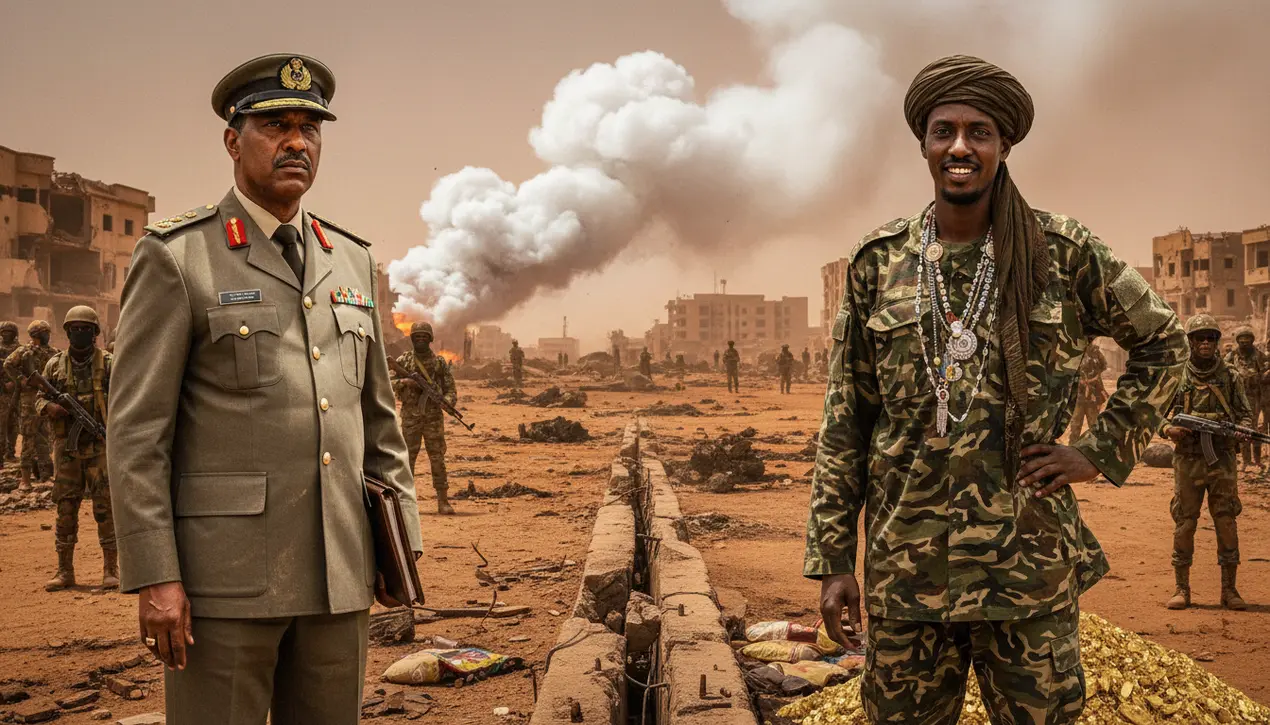
Politicsconflict & defenseMilitary Operations
The 2 men fueling Sudan’s civil war
EM
Emma Wilson
4 hours ago7 min read
The two men fueling Sudan's devastating civil war represent a brutal dichotomy of power that has plunged the nation into unimaginable suffering. President Donald Trump's recent announcement that the U.S. would intervene at Saudi Crown Prince Mohammed bin Salman's request arrives as the conflict reaches a catastrophic turning point.The Rapid Support Forces' capture of El Fasher has effectively cleaved Sudan in half, creating a stark territorial divide between the paramilitary group and the Sudanese Armed Forces. This isn't merely a political struggle—it's a humanitarian catastrophe marked by systematic human rights abuses that have drawn condemnation from global bodies.At the heart of this maelstrom stand General Abdel Fattah al-Burhan, leader of the Sudanese military, and Muhammad Hamdan Dagalo Musa, known as Hemedti, commander of the RSF. Their relationship, once one of uneasy alliance, has disintegrated into a fight for ultimate control, trapping millions of civilians in the crossfire.General Burhan presents himself as the legitimate head of state, a career military officer with a complex history that includes service in Darfur and leading Sudanese contingents in Yemen. He heads a fractious coalition that includes utterly ruthless Islamist brigades whose veto power often undermines his stated willingness to negotiate.His vision appears to be a restoration of the pre-war status quo—a system that sparked civilian rebellion seven years ago. His forces have committed documented war crimes, including blocking international aid to rebel-held areas, actions born from both a lack of discipline and the vengefulness of local commanders.Across the divide, Hemedti operates with a different calculus. A former commander of the notorious Janjaweed militia, he is a figure of both ruthless capability and surprising charm.His trajectory from a militia leader who openly admitted to planning village massacres to a fabulously wealthy businessman controlling gold mines illustrates his mercenary, commercial approach to power. He doesn't seek to rebuild the Sudanese state but to run the country as a family business, backed by his private army.His forces have conducted what experts candidly describe as a genocidal campaign, from ransacking Khartoum to the systematic atrocities in El Fasher, where they filmed themselves torturing and killing civilians with apparent relish. The international community watches, seemingly paralyzed, as these two products of Sudan's decades-long cycle of violence tear the nation apart.The conflict's roots stretch back forty years, tracing how environmental pressures, famine, and continuous conflict have forged a merciless political culture. The future of Sudan now hangs in the balance, threatening to produce yet more generations of leaders shaped not by statecraft, but by war.
#Sudan
#civil war
#Rapid Support Forces
#Sudanese military
#human rights
#featured
Stay Informed. Act Smarter.
Get weekly highlights, major headlines, and expert insights — then put your knowledge to work in our live prediction markets.
Comments
Loading comments...
© 2025 Outpoll Service LTD. All rights reserved.